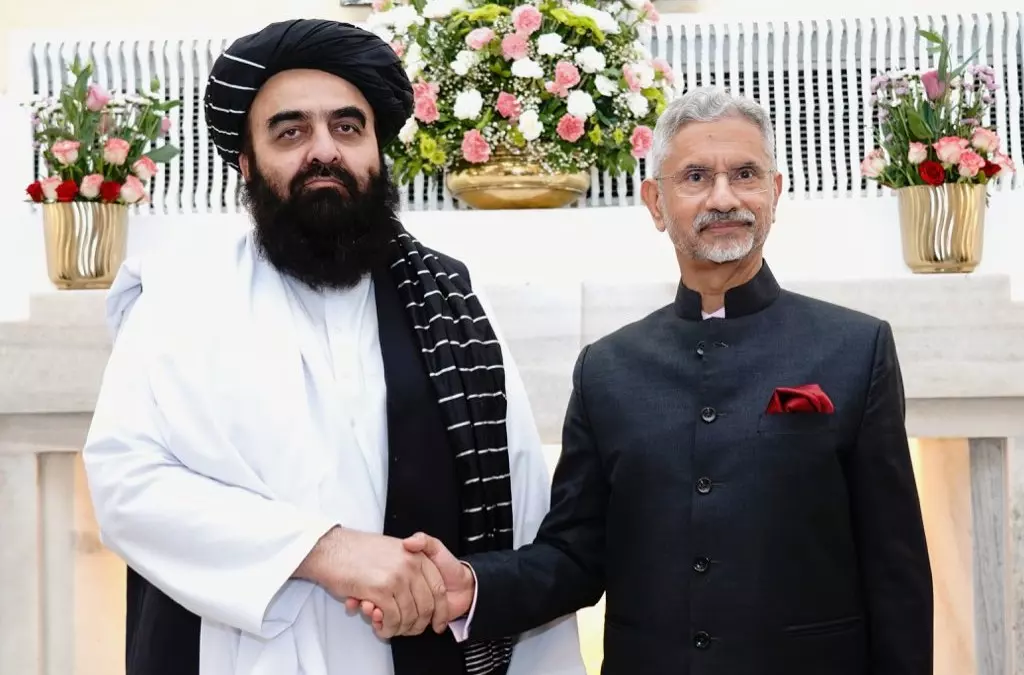
- Home
- India
- World
- Premium
- THE FEDERAL SPECIAL
- Analysis
- States
- Perspective
- Videos
- Sports
- Education
- Entertainment
- Elections
- Features
- Health
- Business
- Series
- In memoriam: Sheikh Mujibur Rahman
- Bishnoi's Men
- NEET TANGLE
- Economy Series
- Earth Day
- Kashmir’s Frozen Turbulence
- India@75
- The legend of Ramjanmabhoomi
- Liberalisation@30
- How to tame a dragon
- Celebrating biodiversity
- Farm Matters
- 50 days of solitude
- Bringing Migrants Home
- Budget 2020
- Jharkhand Votes
- The Federal Investigates
- The Federal Impact
- Vanishing Sand
- Gandhi @ 150
- Andhra Today
- Field report
- Operation Gulmarg
- Pandemic @1 Mn in India
- The Federal Year-End
- The Zero Year
- Science
- Brand studio
- Newsletter
- Elections 2024
- Events
- Home
- IndiaIndia
- World
- Analysis
- StatesStates
- PerspectivePerspective
- VideosVideos
- Sports
- Education
- Entertainment
- ElectionsElections
- Features
- Health
- BusinessBusiness
- Premium
- Loading...
Premium - Events

Indian External Affairs Minister S Jaishankar with his Taliban counterpart Amir Khan Muttaqi in New Delhi. File Photo: X/@DrSJaishankar
The radical group, which returned to power in August 2021, ousting the US-backed government in Kabul, is not the same outfit that occupied power in 1996
At the time of the Indian Airlines IC-814's hijack in Kandahar in 1999, even the most prescient could not have visualised a situation where the Taliban would one day cosy up to India, while distancing itself from Pakistan. But that is exactly what is happening.
For India, the developing Afghan relationship under the Taliban 2.0 is probably the most unexpected diplomatic boost, given that arch-rival Pakistan has managed to strike a mutual defence treaty with Saudi Arabia and is receiving state-of-the-art weaponry from India’s long-standing friend, Russia.
Muttaqi's key visit to India
The visit of Afghanistan’s Foreign Minister Amir Khan Muttaqi to New Delhi and his extensive discussions with Indian external affairs officials managed to evoke expressions of dismay from Islamabad. But that is only a sidelight, important though it might be. The game-changing element is that Muttaqi’s visit, if carried forward, has the potential to dramatically alter geopolitics in South Asia.
Also read: India has to cement Taliban ties as China advances, Pak reels back in Afghanistan
It has taken close to three decades for geopolitical equations in India’s neighbourhood to turn 180 degrees. From total hostility to a potentially close friendship between New Delhi and Kabul, and from a mentor-protege relationship to near-enmity between Afghanistan and Pakistan.
Between Kandahar hijack and now
The Taliban, which was incubated in Pakistan, during the Soviet invasion of Afghanistan, was propelled to power in 1996 with the help of Islamabad. Three years later, the outcome of the Kandahar hijack was an example of total cooperation between the then Taliban and Pakistan, forcing the then Atal Bihari Vajpayee government to release Masood Azhar, Saeed Shaikh and Mushtaq Ahmed Zargar from a Kashmiri jail in return for the air passengers held hostage in the hijacked plane.
Also read: Pak-Afghan forces clash again on border, dozens killed
Relations between Pakistan and the Taliban deteriorated after the 9/11 attacks and the US-led occupation of Afghanistan. The then Pakistan president Pervez Musharraf was forced to crack down on the Taliban and the al-Qaeda stationed within the country, under immense pressure from the then George W Bush administration in the US.
Parallelly, the Pakistani intelligence agency, the ISI (Inter-Services Intelligence) and the military kept their doors open — covertly backing and providing multifaceted support for the Taliban. In trying to please both, Islamabad ended up antagonising Washington and the US-controlled government in Kabul.
The rise of TTP
A serious repercussion was the rise of Islamic militancy in Pakistan under the Tehrik-e-Taliban Pakistan (TTP) that launched strikes within the country. To give an idea about the seriousness of the situation, in the first three-quarters of this year, some 2,400 Pakistani security personnel have been killed in TTP attacks, say reports quoting an Islamabad think tank.
Also read: Javed Akhtar slams Taliban minister's reception in India
In other words, militancy supported by successive governments in Islamabad, under US pressure, to target the Soviets in Afghanistan, has come back to bite the country in the post-9/11 period.
Taliban 2.0 refuses to forgive Pakistan
When the Taliban sensationally returned to power in Kabul in August 2021, overthrowing the US-backed government, it was not the same outfit that had occupied power in 1996. The new Islamic dispensation refused to forgive Pakistan’s two-timing in the period between 2001-2021.
The government in Islamabad expected the Taliban to rein in the TTP, which was creating havoc within Pakistan. But to no avail. Taliban interlocutors in Afghanistan claimed that though they were ideologically aligned with the TTP, they were two separate organisations.
Also read: Afghan FM blames ‘technical issue’ for excluding women journalists from press meet
Pakistan refused to accept the Taliban 2.0 government’s inability to stop the TTP. This, even as hostilities between the two countries in the last four years have reached a crescendo. The latest was the fighting last week on the Afghan-Pakistan border, resulting in the killing of 200 Taliban fighters and 58 Pakistani soldiers.
The break in the Pakistan-Taliban friendship is more than welcome news for India, an opportunity it cannot afford to squander. New Delhi finally has the chance to strategically corner Islamabad. It is in this context that the Modi-led alliance government invited Muttaqi to New Delhi and is in the process of sewing up an important long-term relationship with Afghanistan.
Pakistan's desperate act
The day Muttaqi arrived in New Delhi — on October 9 — two powerful explosions rocked Kabul. Though Pakistan has not claimed responsibility, it is widely believed that it was either Islamabad or forces close to it that triggered the explosions — as a warning to the Taliban not to get close to New Delhi.
Also read: As Muttaqi hopes for stronger India ties, Pak summons Afghan envoy over J-K statement
If true, it indicates Pakistan's desperation to somehow control the Taliban and ensure that it plays by the rules set by Islamabad. But the Taliban appears to have other ideas. For one, it appears keen on breaking out of the emotional clutches of Islamabad and engaging with other nations on its own terms, especially in the sensitive South Asian region.
The Taliban has managed to get the recognition of Russia, is in strategic talks with China seeking investment, and establishing a new relationship with India.
During the first term of the Taliban, until the 9/11 attacks, the US backed the Taliban via Pakistan and the Islamic group could ignore diplomatic realities in its neighbourhood. But now, it desperately needs recognition. Beijing, Islamabad and New Delhi have not formally done so.
If it needs the world to recognise it, the Taliban dispensation cannot afford to follow hardline, outdated practices in its brand of Islam. Its brazen discrimination against women and minorities has particularly shocked much of the world.
Also read: ‘Enough is enough’: Pakistan warns Taliban regime over cross-border terror
The widespread uproar after the first press meet of Muttaqi in New Delhi, when women journalists were not allowed for the event, is the clearest example that the Taliban needs to recalibrate its regressive social policies — if it wants to engage with other countries as any self-respecting nation is wont to do.
Modi govt will face domestic opposition
Liberalising its strident Islamic policies will make it easier for democracies like India to go ahead and consolidate its relationship with Kabul. In the current form the Taliban is in, the Narendra Modi government will experience internal opposition from the civil society and Opposition parties when it attempts to get closer to Kabul.
It's a tricky situation for India. While it would not want to miss the unexpected opportunity to get closer to Kabul, if only to spite its arch-rival Islamabad, it would require a great deal of tact for it to forge a relationship that would work to its advantage.
Also read: Jaishankar meets Taliban FM Muttaqi in Delhi: Top 5 takeaways from crucial meeting
The China factor
The elephant in the room is, unsurprisingly, China. For all its exhortations regarding ties with India, the Xi Jinping government is extraordinarily close to Islamabad. If the situation gets out of hand in the Afghan-Pakistan relationship, it would be natural for Beijing to step in and defuse mutual hostilities and work out some agreement between the two.
China was among the first countries to start talking with the Taliban 2.0 in Kabul. It has extended an invitation for the Taliban to join its flagship Belt and Road Initiative. For the Islamic regime that is governing a nation in a deep economic crisis, it is helplessly dependent on largesse from Beijing to get by.
Also read: Priyanka Gandhi slams ban on women journalists at Taliban event, asks PM Modi to clarify
The economic crisis has worsened with the return of millions of Afghans, forced out of neighbouring Iran and Pakistan. The returnees don’t have jobs and have proved to be a huge burden on the four-year-old Taliban 2.0 government. So, Muttaqi and his colleagues cannot afford to ignore China. For Pakistan, Beijing would be its trump card if the Taliban moves any closer to India.
India, too, has dangled various carrots in front of the Taliban. During Muttaqi’s recent visit, New Delhi promised to helm several infrastructural projects, upgrade its engagement with Kabul and invest in mining, among others. So, it won’t be easy or strategically advisable for the Taliban to return to its old frosty relationship with India.


